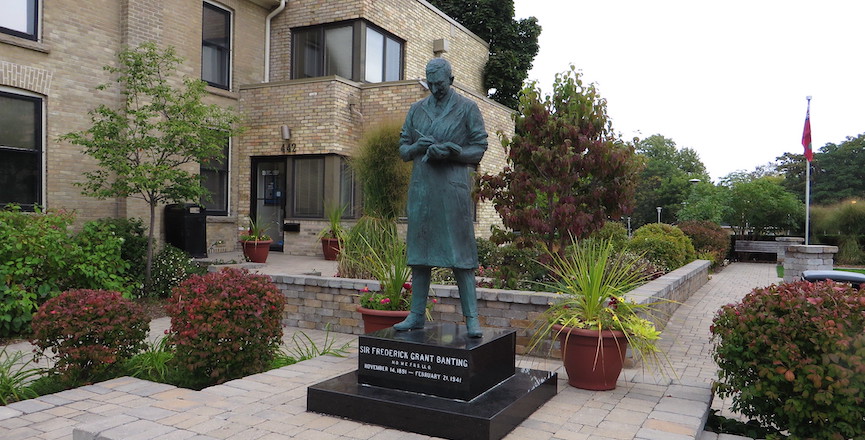In the 1920s, Canada became world-renowned for discovering insulin and providing it at very low cost to Canadians and diabetics around the world.
Yet today, this iconic achievement lies in ruins; millions of diabetics in Canada and elsewhere are at the mercy of multinational drug companies that have dramatically jacked up the price of the miracle drug, which many diabetics need to survive.
This is exactly what Canadian scientists Frederick Banting and Charles Best desperately sought to avoid when they generously handed the patent for their insulin discovery over to U of T and its Connaught Labs, which was committed to ensuring insulin would benefit humankind, not corporate investors.
But when Connaught Labs was privatized by the Mulroney government in the 1980s, we lost — not only one of the world’s best vaccine producers — but also control over the price, quality and availability of insulin worldwide.
This tragic outcome for diabetics also provides a compelling example of how Justin Trudeau’s government is making a mockery of its claim to “build back better.”
Of course, it’s not Trudeau’s fault that Brian Mulroney privatized Connaught, leaving Canada years later facing the COVID-19 pandemic without a top-notch vaccine producer.
But, if “build back better” means anything, surely it means we should recreate something like Connaught, which served Canadians so well for seven decades.
Instead, the Trudeau government is providing hundreds of millions of dollars to private pharma companies in a vague attempt to prepare ourselves for the next pandemic.
Indeed, Canadian taxpayers are giving $470 million to the Canadian branch of French pharma giant Sanofi in hopes that Sanofi will give us priority access to vaccines produced here in a future pandemic — but there’s no guarantee!
This “investment” in Sanofi also destroys hope for Canadian diabetics that “building back better” will include restoring a world where they can afford insulin, which today can cost more than $2,500 a year — roughly five times the 1985 cost (adjusted for inflation).
The 1922 insulin discovery was a lifesaver for millions of diabetics around the world. A childhood diagnosis had been an effective death sentence. But, with daily insulin, these children could lead normal lives.
The discovery became doubly significant due to the involvement of Connaught, which produced affordable insulin for all of Canada and supervised its production elsewhere through licenses preventing companies from developing monopolies that would allow them to increase their prices.
The arrangement worked extremely well for six decades, according to health policy researcher Colleen Fuller.
But starting in the 1980s, multinational drug companies Eli Lilly, Novo Nordisk and later Sanofi got around patent restrictions by producing a genetically engineered form of insulin. The new insulin turned out to be much more expensive and posed serious risks — including even death — for some users, Fuller says.
Even so, the three companies soon phased out the old, animal-based insulin they’d long been producing under Connaught guidelines. They also drove small producers of the old insulin out of business and took over 95 per cent of the world market with the new insulin.
Connaught would have protected Canadians from these disastrous changes — except that the Mulroney government privatized Connaught, ending its central role in the Canadian and global insulin market.
Today, the high cost of insulin means that roughly half the people in the world who need it can’t get it — a much lower rate of accessibility than when Connaught was keeping world prices down.
“Today, not a single drop of insulin is produced in Canada due to the end of Connaught Laboratories,” notes Fuller, co-author of the forthcoming book “Diabetes Inc.”
“Without this iconic Canadian institution, insulin users have had to rely on global manufacturers whose main focus is increased profits, not easing the cost burden on patients.”
The pandemic has spawned the dream that maybe, just maybe, we can smarten up and truly “build back better.”
Trudeau’s decision to hand over hundreds of millions of dollars to private pharma companies rather than creating our own publicly owned pharma enterprise — like the one we had that gave the world access to life-saving insulin — suggests he has no real intention of building back better. He’ll stick with the corporate plan.
Linda McQuaig is a journalist and author of The Sport & Prey of Capitalists: How the Rich are Stealing Canada’s Public Wealth. This column originally appeared in the Toronto Star.
Image: Ken Lund/Flickr



